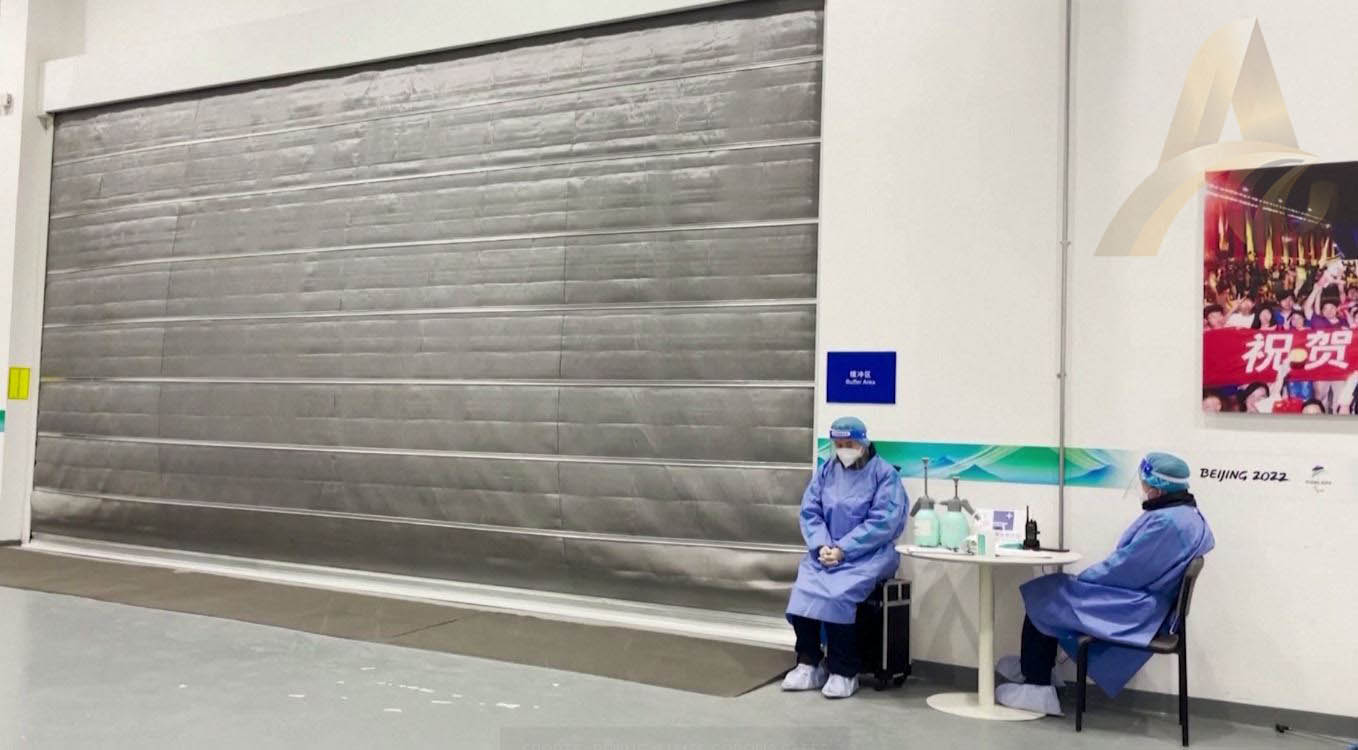INTERNATIONAL: Beijing Olympics organizers have confirmed on Sunday, 23 January, 72 cases of COVID-19 among 2,586 Games-related personnel, among early arrivals, from 4 to 22 January, with no cases among 171 athletes and team officials arriving in that period.
Final preparations are taking place for the Winter Games amid a global surge in cases of the highly infectious Omicron coronavirus variant.
Of the 72 confirmed cases, 39 were found in testing at the airport and 33 inside the loop, organizers have said.
The Games are set to take place from February 4 to February 20 inside a "closed loop" bubble that separates all event personnel from the public.
Designated gate positions, areas, pathways and lines have been set up at Beijing Capital International Airport, the entry point for overseas Olympic participants, to form a complete closed loop.
These designated areas are completely separated from other areas, and Games-related personnel will not have any intersection with ordinary passengers. All personnel in the closed loop are required to use Games-dedicated vehicles between designated places without any contact with people outside the loop and local citizens.
Beijing 2022 organizers have stressed that there is no widespread infection inside the closed loop and the epidemic is under control.
Participants in the bubble are subject to daily testing, with 336,421 PCR tests administered from January 4 to January 22.
The chair of the Beijing 2022 medical expert panel, Brian McCloskey has said that the numbers were consistent with those at last summer's Tokyo Games and in line with expectations.
All Games participants need two negative PCR test results within 96 hours of their departure to China, and most are traveling on specially arranged charter flights.
Those who have a confirmed positive test will not be allowed to compete or continue their role. If symptomatic, they will be asked to stay at the designated hospital for treatment. If asymptomatic, they will be asked to stay in an isolation facility. There will be accessible rooms and experienced on-site personnel to assist with daily care tasks for those who require it.
Those who are asymptomatic will return to their Games-time role after being discharged from isolation, and confirmed cases will resume their Games-time role after recovery and will be asked to adopt additional countermeasures.
Last week, organizers have said that tickets for the Olympics would not be sold to the general public due to COVID-19 and would instead be distributed to groups of people who would be required to undertake strict prevention measures before, during and after attending events.
China has managed to contain domestic outbreaks of COVID-19 since it first emerged in the central city of Wuhan and has all but shut its borders to international arrivals.
On Sunday, Beijing's city government has introduced further measures to contain COVID-19 after finding nine locally transmitted cases the previous day.
PHOTO: SECURITY FENCES AROUND THE OLYMPIC BUBBLE / SECURITY AND HEALTH CHECKS























